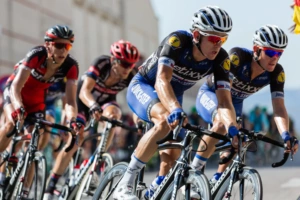Sponsored content
How Idolising Athletes in Popular Sports Can Be Harmful
This article is more than 3 years old.

(photo: Pexels)
Athletes are perceived as perfect and almost god-like because of their fitness and accomplishments. Many athletes undoubtedly project an exciting life that anyone would want to have. Unsurprisingly, when most sports fans are asked of their heroes growing up, most answers end up being athletes.
Although having a favourite athlete isn’t inherently bad, idolising them can be harmful. We can’t deny that the idolisation of athletes has created a particular bond between fans and their idols. However, it can become a harmful obsession. It can even translate into unhealthy betting. Instead, you can place a healthy NHL wager on BetUS just for fun.
In that case, we’ve outlined some ways idolising athletes in popular sports is harmful to sports, fans and athletes.
It Takes Away the Fun in the Sport
Idolising athletes might start due to profound love for a particular sport. However, it can take a turn to hurt the sport, as most fans idolising athletes begin to ignore the best aspects of the sport. It becomes all about their favourite player doing well rather than the team or sport.
It’s Harmful to Athletes
The idolisation of athletes puts them on a pedestal, taking away their chance to be human, as a simple misstep can destroy their entire career. Athletes have to be extra careful, unlike the rest of us, because they’re always in the eyes of the public.
Kids Pick Up the Good and Bad Traits
When kids idolise an athlete, they follow them both on and off the pitch. So, it’s possible to pick up all kinds of habits. According to Newport Academy, celebrities significantly influence children and push them to act based on what they learn from their idols.
Can Cause Violence
Popular sports have undoubtedly presented their share of violence over the years, with one of the causes being rivalries between two opposing fans. In some cases, the idolisation of athletes can also lead to violence. We’ve also seen this lead to racism between opposing athletes.
Conclusion
There is no issue with liking a particular athlete or team. However, it becomes a problem when you try to live through them and imitate everything they do. Also, if you’re a bettor, you need to find a balance, as idolising an athlete can lead to harmful biases.
For instance, if you want to bet on an NHL match, rather than focus on the NHL odds, you would want your idol to get all the points, leading to placing a wrong bet.










































